15 Charmingly Silly Dog Names From the 15th Century
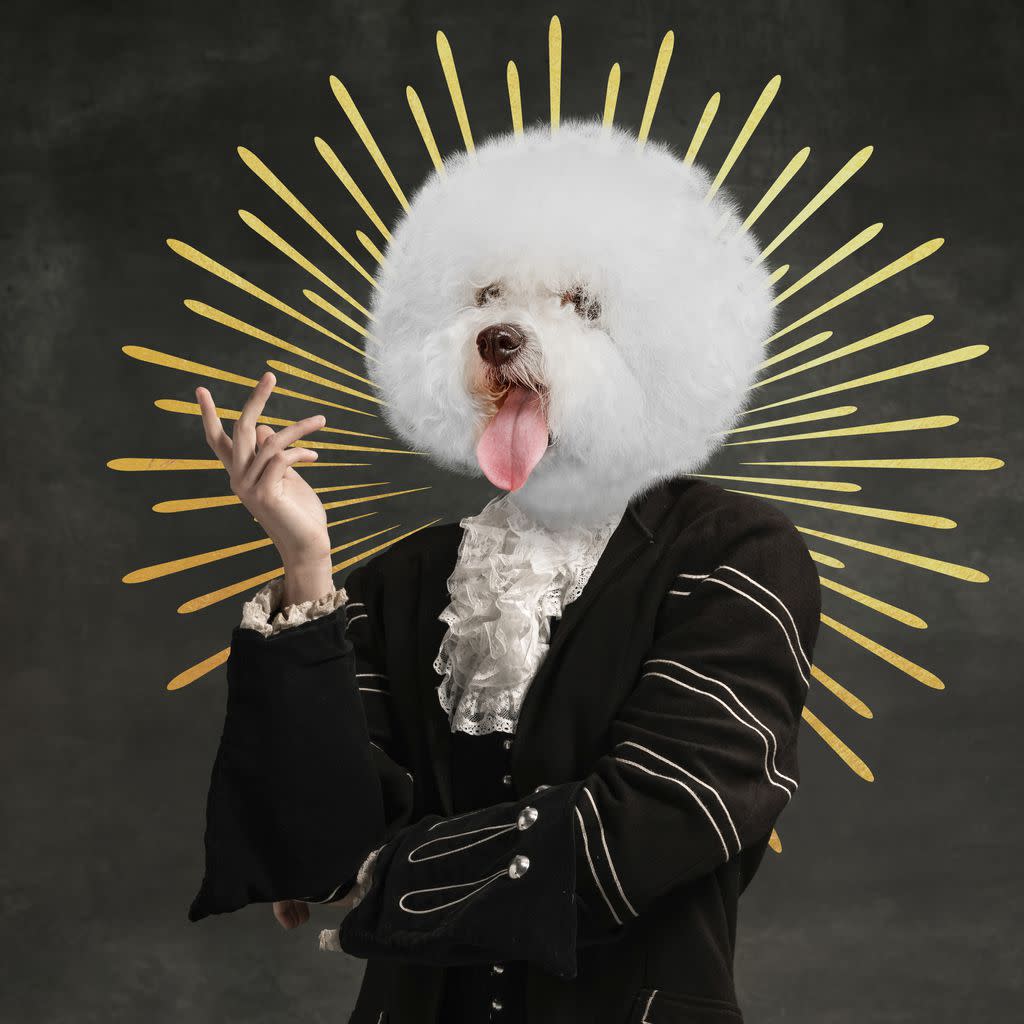
Goode Boye Sir Poops-a-lot
Raise a paw if you've ever met a dog named Loki who thinks he's the god of mischief, or a Teddy Clark who's basically the four-legged version of a Wall Street executive. With the rise of unique and, let's be honest, pretentious pet names, it's easy to forget that our furry companions have a long history of equally remarkable names. Recently, the ever-entertaining WeRateDogs dug up a goldmine: a list of 15th-century dog names penned by Edward of Norwich, the 2nd Duke of York. Over 1,000 names made the list, showing that elaborate pet naming is hardly a modern invention. Lucky for you, we've scoured the list too and picked out the most hilarious, weird, and wonderful dog names of yore. Hold onto your leashes; you're in for a treat!
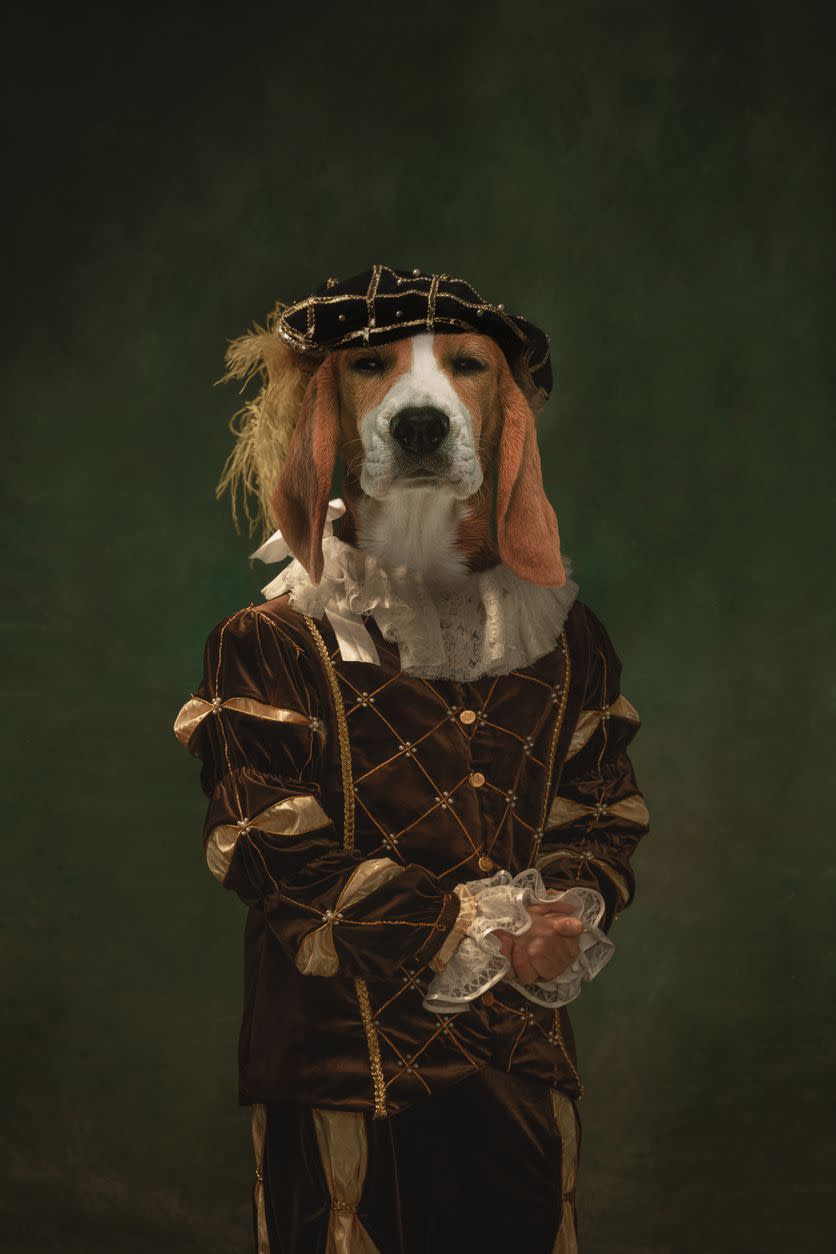
1. Wellyfownde
The name Wellyfownde has its roots deep in the Middle Ages and would likely belong to a dog of nobility or high social standing. It's a name that conjures images of grandeur and virtue. If Wellyfownde were around today, he'd probably have his own Instagram account showcasing his "nobility," which primarily consists of sitting on velvet cushions and dramatically staring into the distance. A true canine influencer of the 15th century.
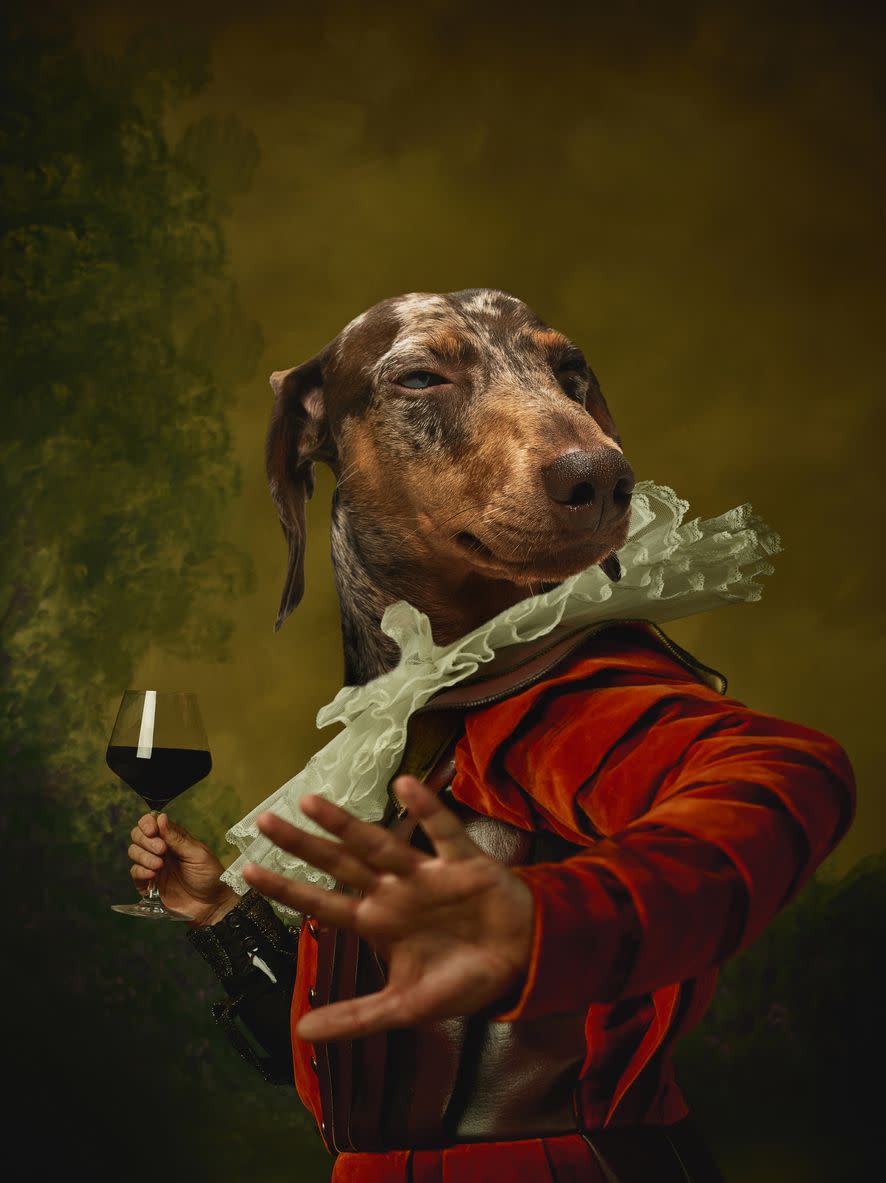
2. Grimbolde
Grimbolde sounds like the guy you don't want to mess with at the dog park. While the other dogs are chasing balls, Grimbolde's sitting in the corner, plotting how to conquer the neighboring yard.In Anglo-Saxon the meaning of the name Grimbold is: Fierce bold.It's a name that would signify a loyal, protective, and perhaps somewhat intimidating pet.
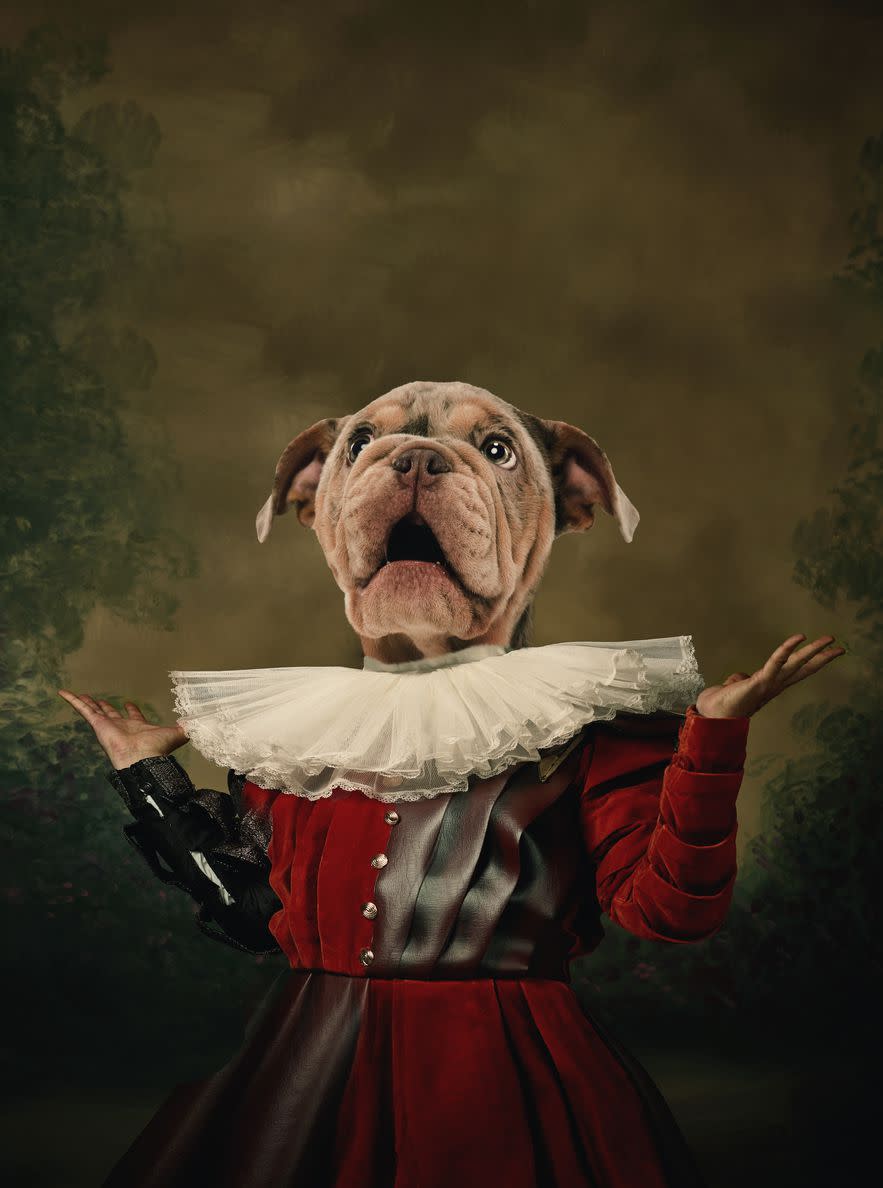
3. Tristram
Ah yes, Tristram, the dog so chivalrous he refuses to lift his leg without first announcing his intentions. He's the Lancelot of pooches, but let's face it, his quest usually involves finding the best spot to nap. Tristram is a name that hails from Arthurian legends and romantic tales of chivalry. The name has roots in Celtic and Old French, stemming from the name "Drystan" or "Tristan," which means "tumult" or "uproar."
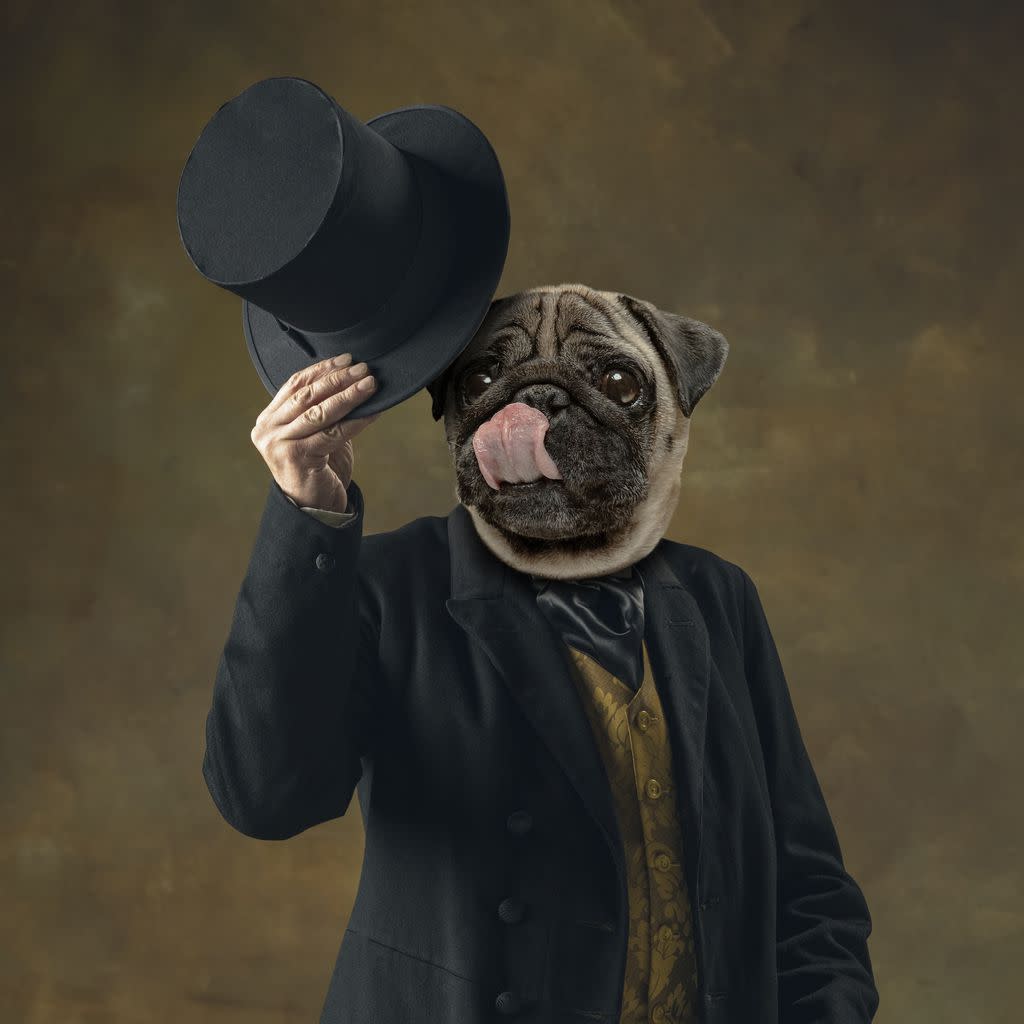
4. Garlik
Garlik is the dog you can smell before you see. He's got a pungent personality that's a mix between loveable and "needs a bath." But you know, it adds character. The name is quite unique and might signify the family's involvement in herbal medicines or the spice trade during the 15th century.
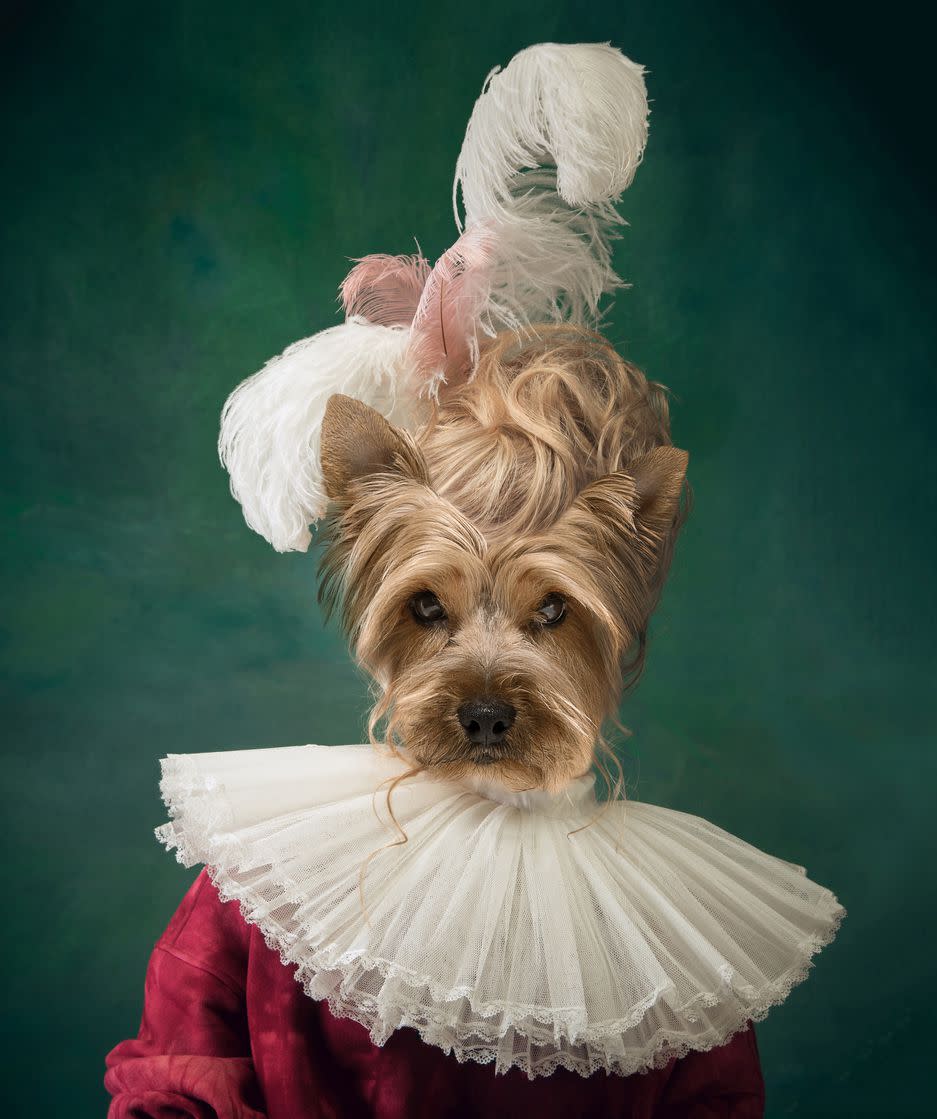
5. Crampete
Naming your dog Crampete now could make people think you've had one too many leg cramps or maybe that you're just a fan of complicated yoga poses. Crampete might have indicated a dog that was small and wiry, similar to a cramp. It could also signify a dog with a lot of energy, always "cramping" into small spaces.
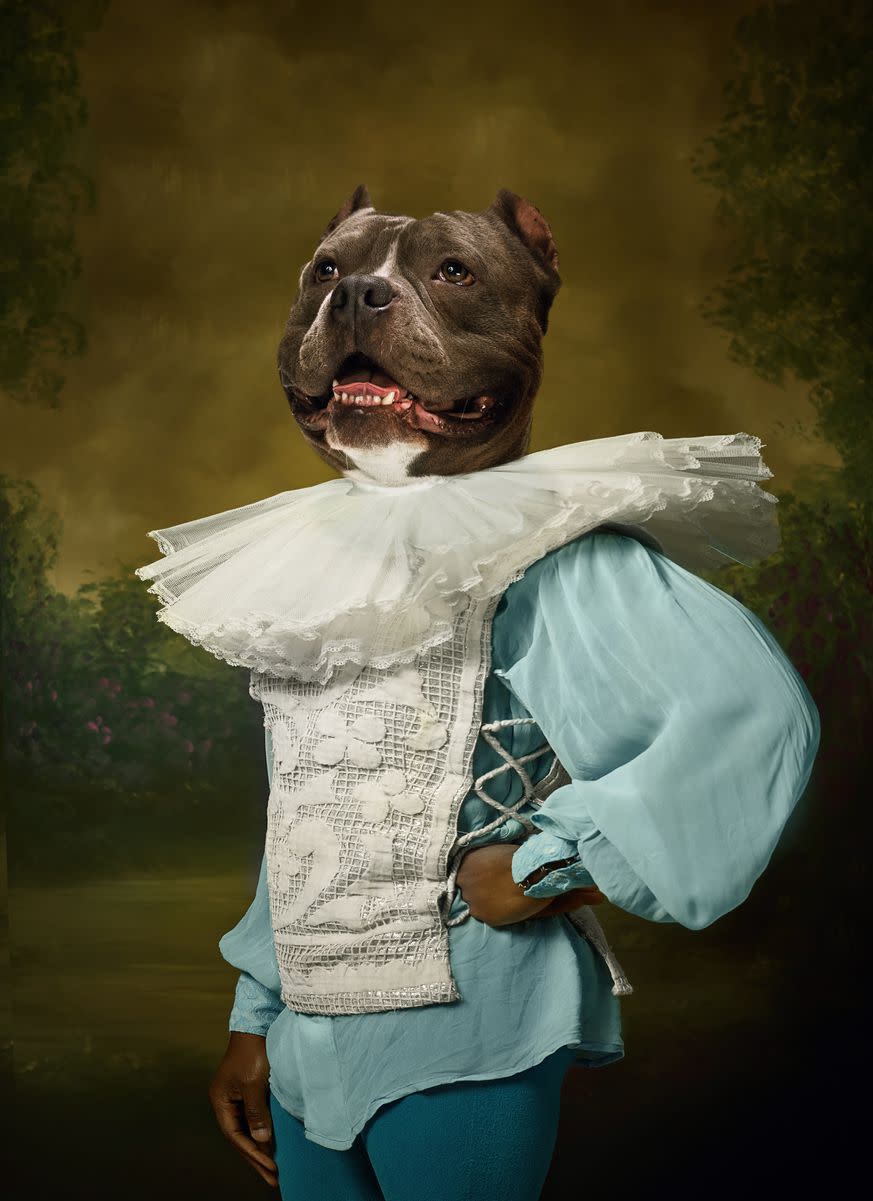
6. Salmon
In today's age, it's surprising that Salmon hasn't skyrocketed as a trending baby name, given it checks all the modern criteria. But back in the 15th century, Salmon, as a dog name, probably originated a dog that was particularly good at fishing or swimming.
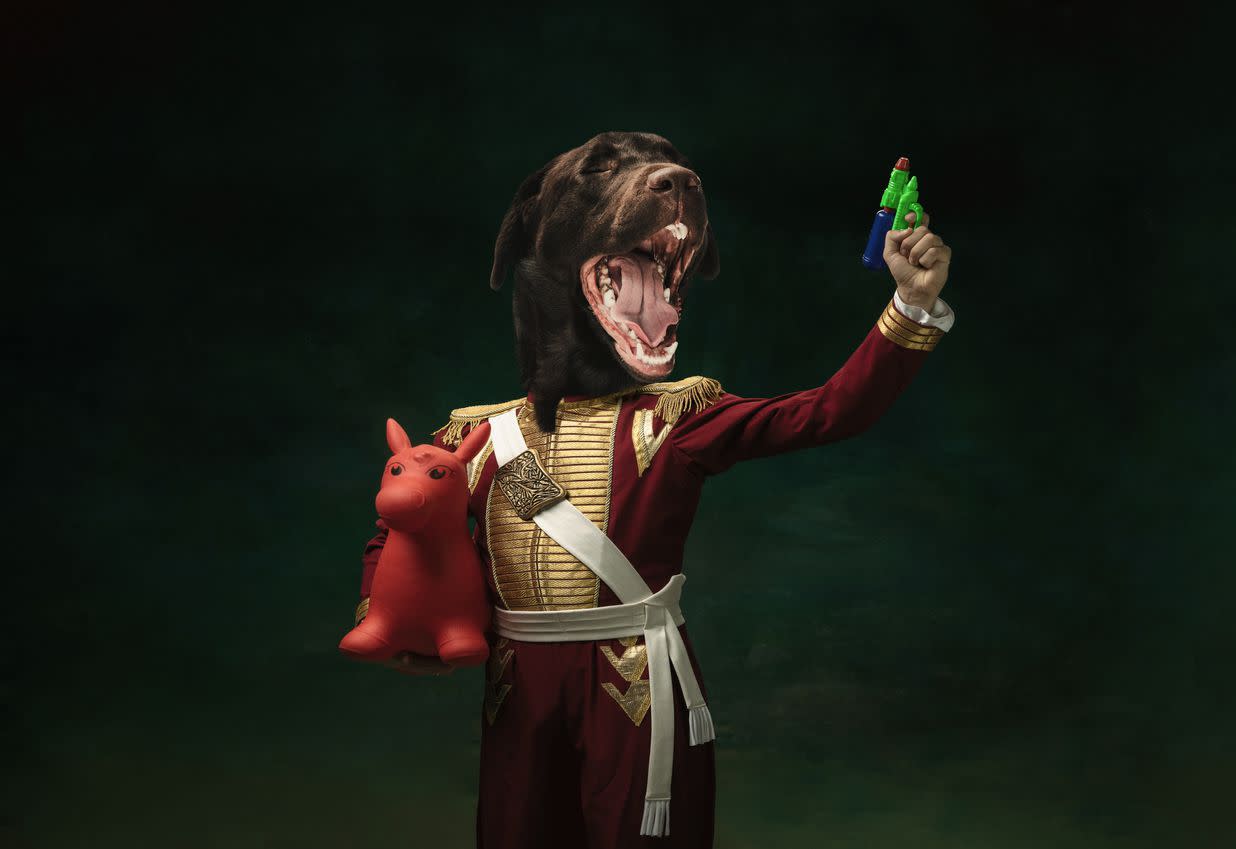
7. Go-bifore
"Go-bifore"! This 15th-century name screams "leader of the pack." This isn't the pup who follows you around; this is the trailblazer you struggle to keep up with.
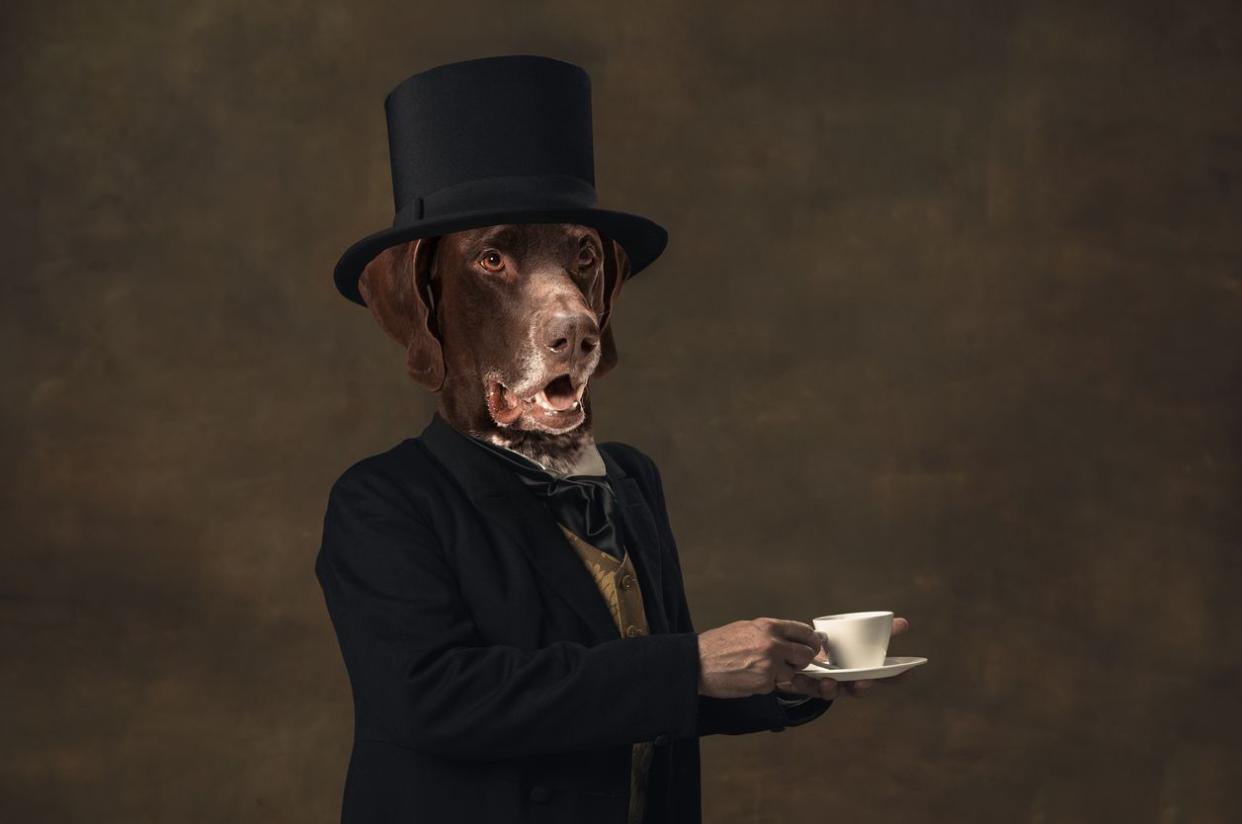
8. Stalkere
"Stalkere" is the 15th-century name you give to a dog that's more shadow than pet. Think of it as the original four-legged spy—always there but never obvious. A little bit mysterious, and way cooler than any modern dog name trying too hard to be unique.
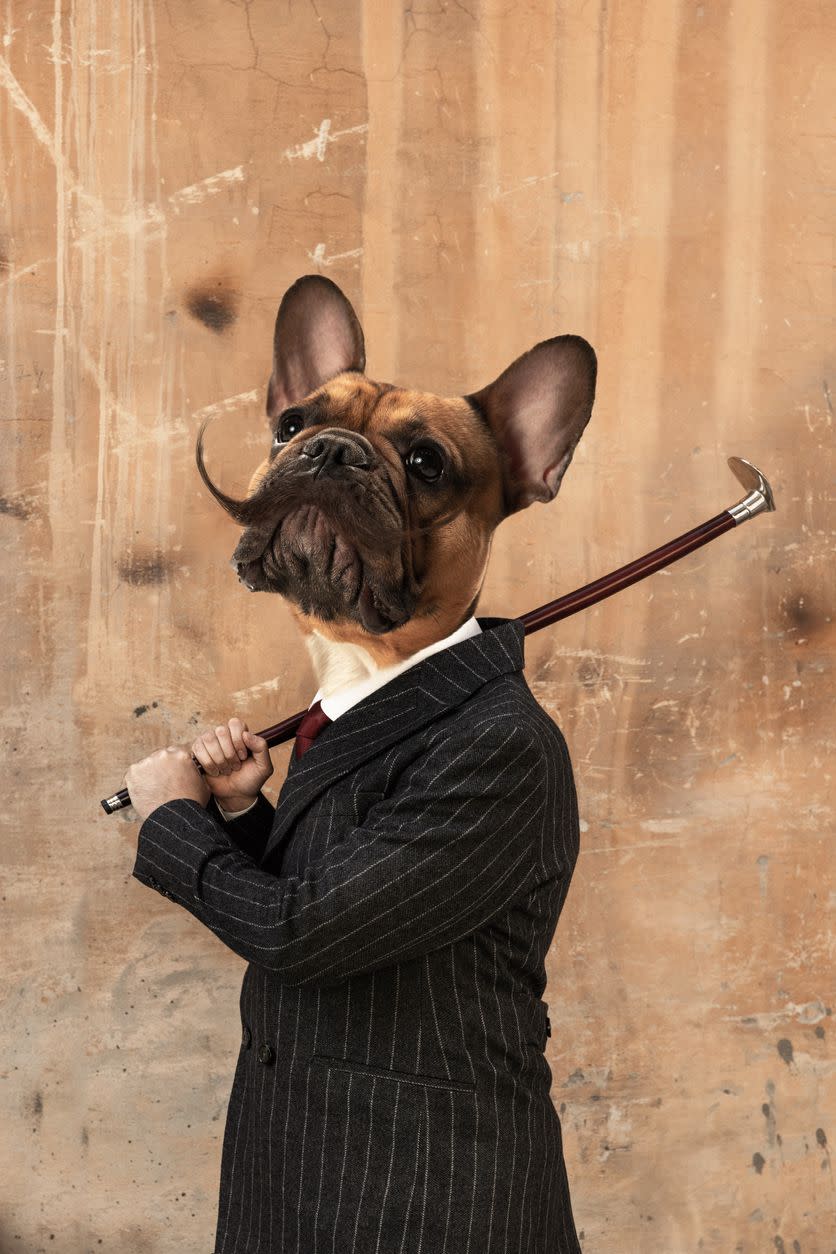
9. Beste-of-all
"Beste-of-all" — talk about setting the bar high! This 15th-century name oozes with pride and confidence. Perfect for that pooch who's just the absolute best in every way. Whether acing obedience training, mastering the art of fetch, or just being the best cuddler, this dog surely lives up to its name. Ideal for any breed that you consider the crème de la crème!
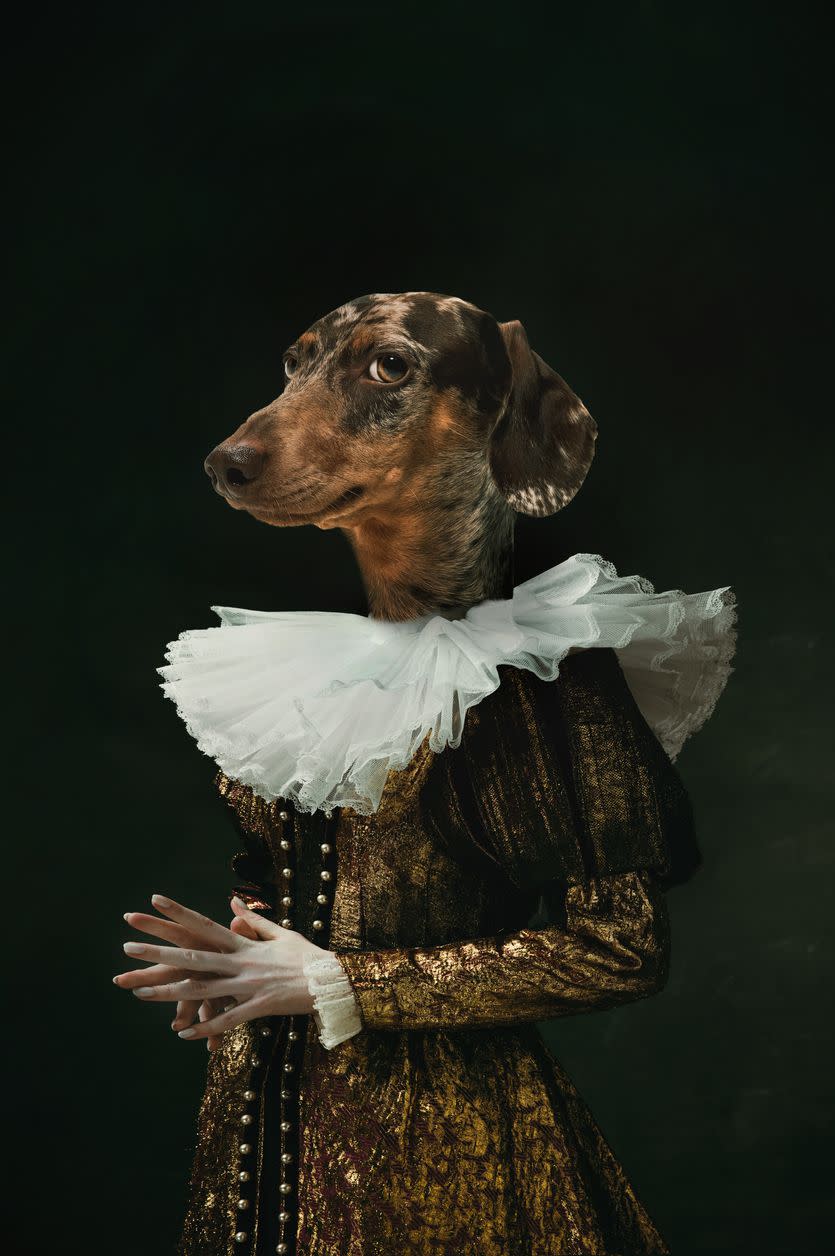
10. Nosewise
Now that's a name that screams, "This dog can sniff out anything!" Back in the 15th century, this pup would probably be the go-to for any hunting expedition. Think Bloodhounds or Beagles, the detectives of the dog world. If your dog's nose knows no bounds, this historical name might just be a perfect fit.

11. Tullymully
Was Tullymully a pint-sized ball of energy? A diligent hunting hound? Or perhaps a herder keeping livestock in check? Given the creative penchant for naming dogs in the 15th century—when dogs were not just cuddly pets but hard-working assets—Tullymully could have been a standout name called out across busy market squares or lonely pastures.
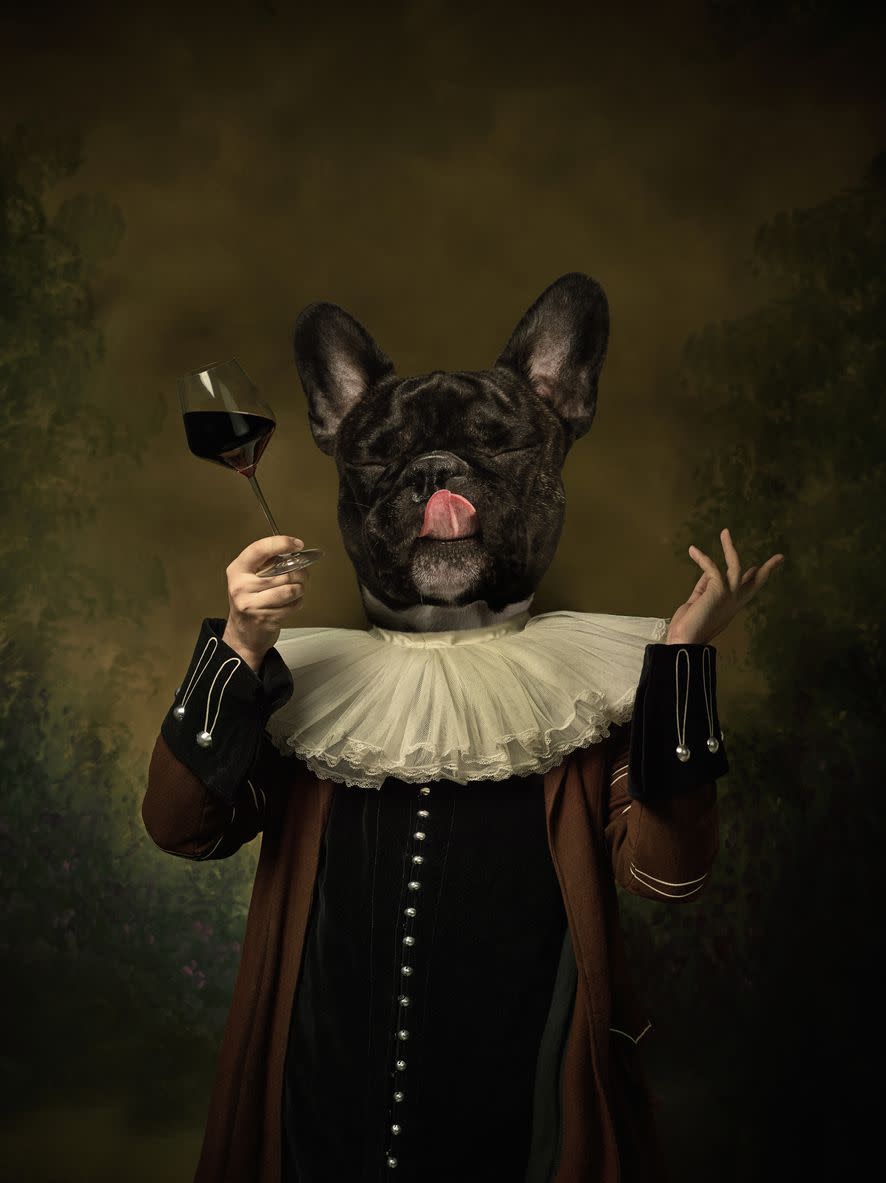
12. Wrecche
Wrecche plays the underdog well, especially when there's food to be had. The name "Wrecche" appears to be derived from Old English "wræcca," which means "exile" or "wretch."
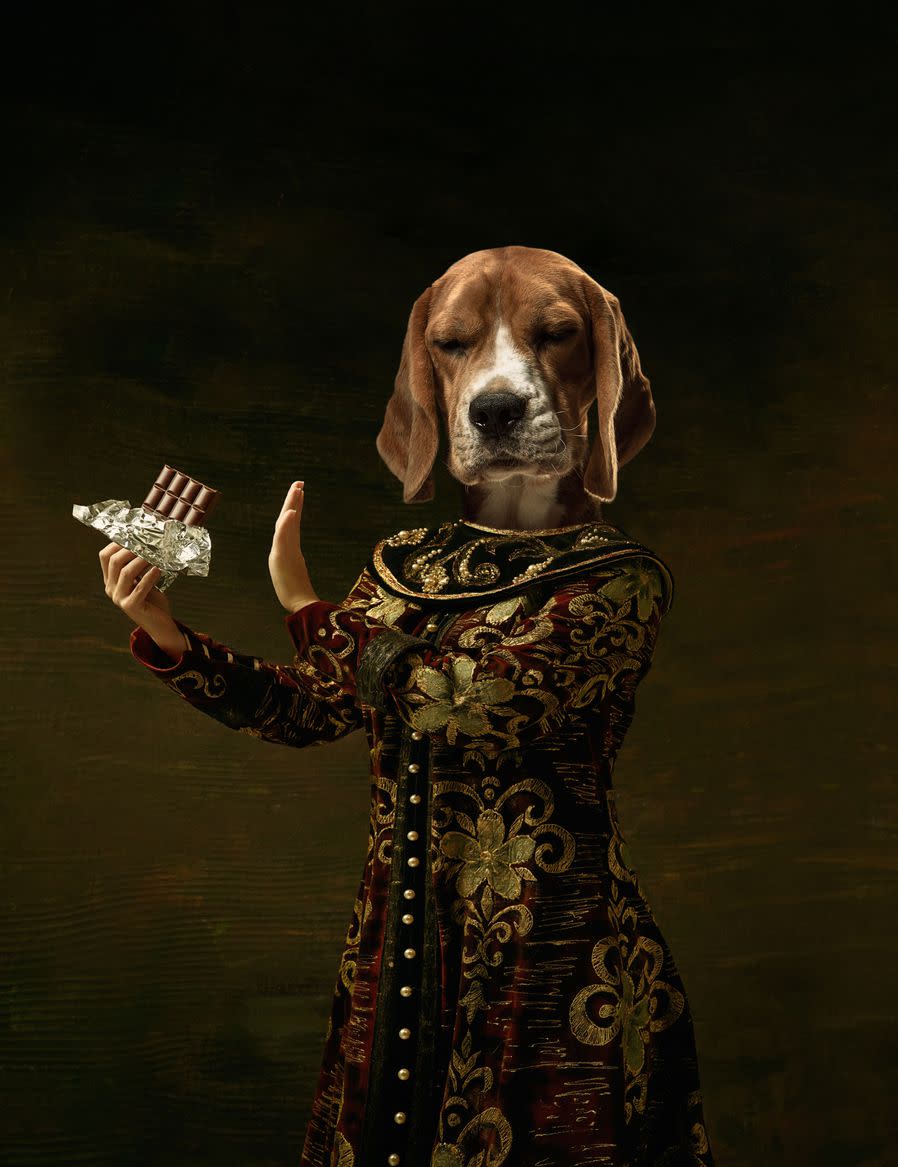
14. Malaperte
If dogs could talk, Malaperte would be the one to give you unsolicited advice. The name "Malaperte" is likely derived from Old French, where "mal-" means "bad" or "ill," and "apert" means "open" or "obvious." Given its meaning, "Malaperte" would be an amusing name for a dog with a sassy or brash demeanor. Think of a small dog with a big personality, or a large dog who isn't afraid to steal your seat when you get up.
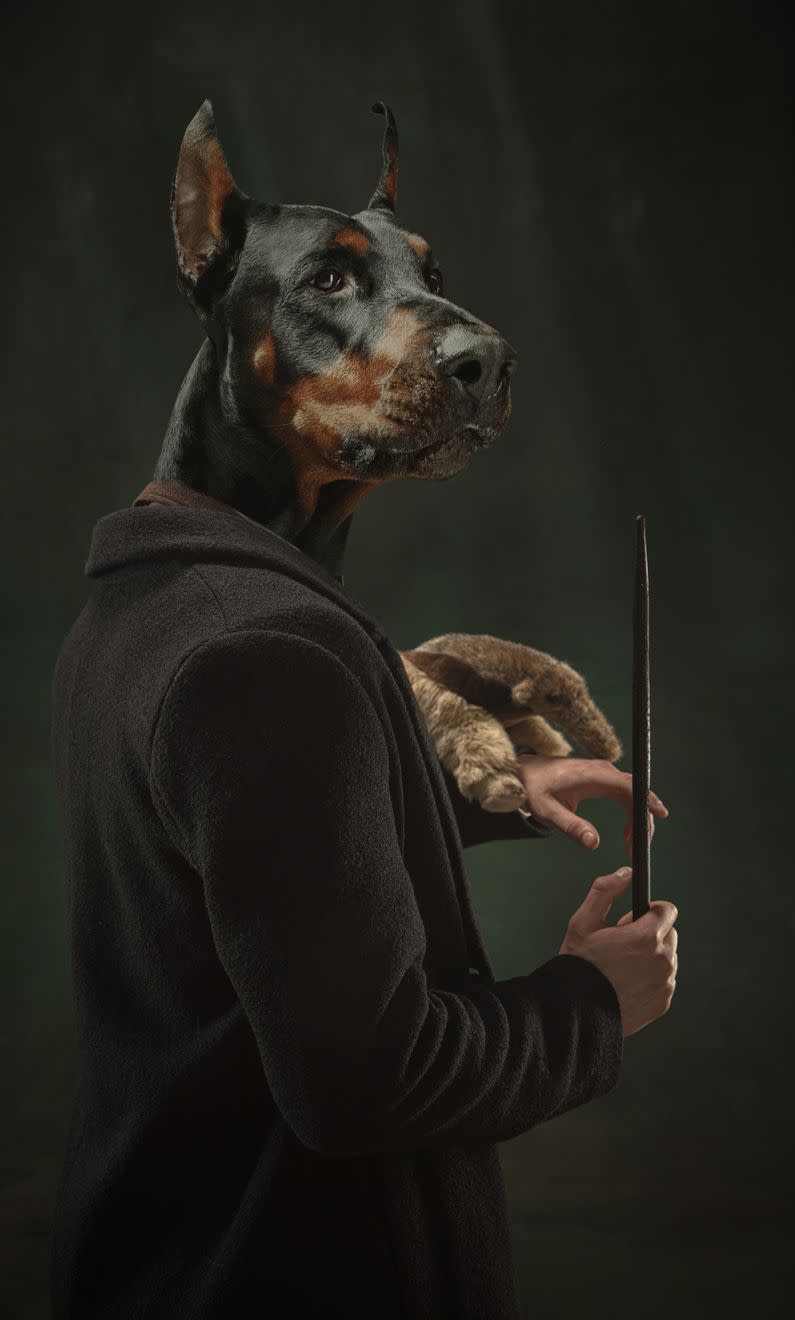
14. Soneforgete
This is Soneforgete; don't take it personally if he walks away in the middle of a petting session, he's just living up to his name. Imagine a pooch that runs after a ball only to forget what he was doing halfway there, or one that barks at a squirrel and then immediately gets sidetracked by his own tail.That's Soneforgete.
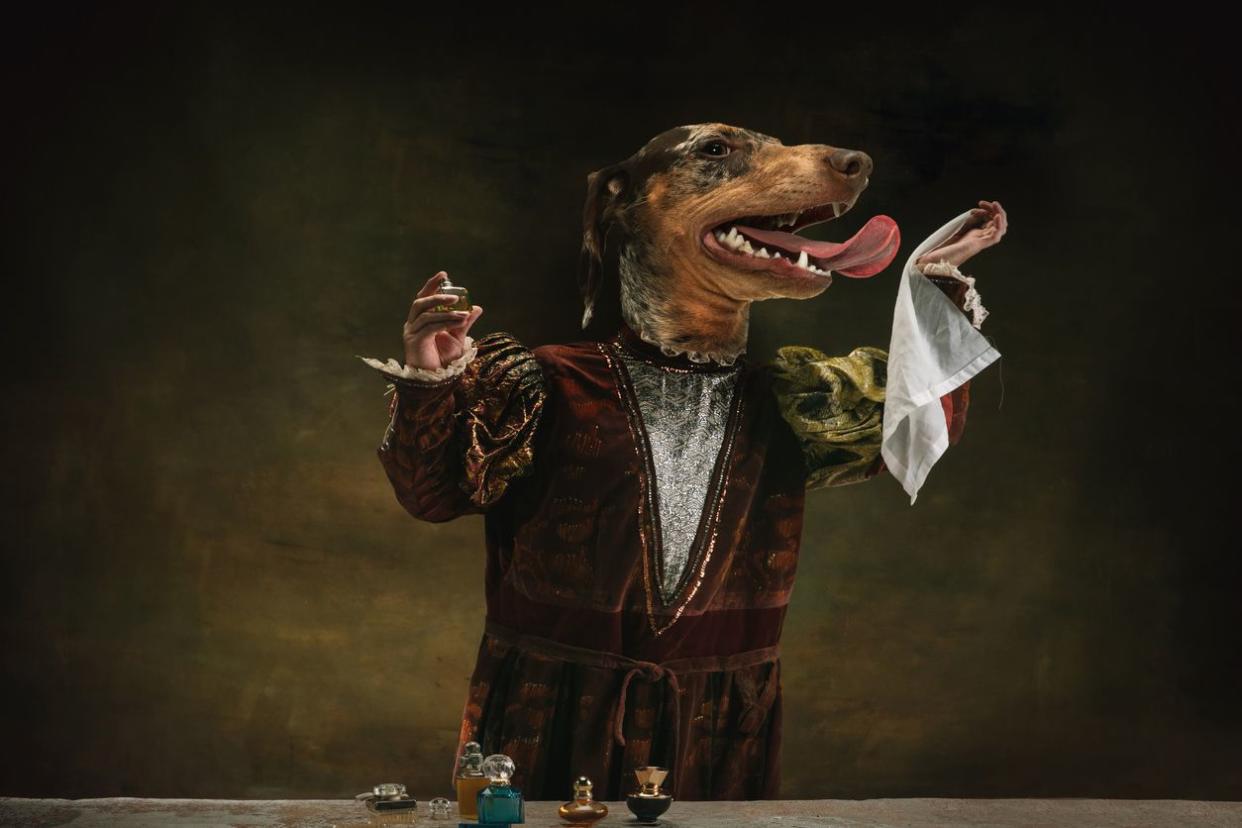
15. Pardonere
Meet Pardonere, the only dog who'll forgive you for eating the last slice of bacon—though you'll have to buy him a new toy as penance! The name "Pardonere" appears to have roots in Middle English, most likely derived from "Pardoner," a term used for a person licensed to sell papal pardons or indulgences.
This article was produced and syndicated by MediaFeed.
